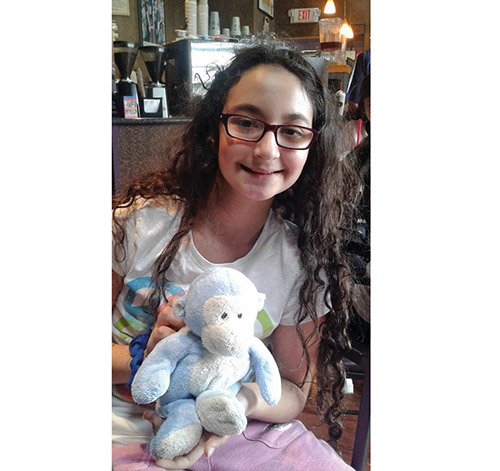


“Bedtime Reading for Briskers: Lomdus and Life-Lessons From the Laws of Korbanos on the Weekly Parsha,” by Rabbi Ephraim Meth. Independently published. 2021. English. Paperback. 259pages. ISBN-13: 979-8524658272.
Please allow me to first explain the meaning of this book’s cheeky title. “Briskers” refer to the stereotypical yeshiva students reputed to engage in pilpulistic casuistry (termed “lomdus”), who are especially known for their peculiar practice of studying the Order of Kodshim. The tractates within that Order of the Talmud broadly deal with the laws of ritual sacrifices and the other rites in the Holy Temple. Those laws have a reputation of being dry and arcane, making them accessible to only the most expert Talmudic scholars.
Rabbi Meth turns all this on its head by offering an easily accessible work mostly dedicated to the laws of the Temple and its various rituals. For each parsha, Rabbi Meth finds some related theme (sometimes more loosely than others) and offers a learned study on that topic. Sometimes, his essays are more of a halachic nature, while sometimes, they are more Aggadic, and sometimes, somewhere in between—but they are always interesting and original.
True to form, most essays revolve around some difficult passage in Maimonides or Sefer HaChinuch, which Rabbi Meth typically illuminates with a novel thought or by citing an earlier scholar who dealt with the issue at hand. When dissecting a topic, Rabbi Meth provides the reader with the requisite background to the Talmudic discussions in plain English, often with analogies that help bring home the point being discussed. Additionally, the author draws from a wide range of sources that people not might be familiar with, like Rabbi Moshe Isserles’ “Toras HaOlah” (a comprehensive synthesis of philosophy and Kabbalah dedicated to the topics of Kodshim) and Rabbi Meir Simchah of Dvinsk’s “Meshech Chochmah” (a deeply insightful commentary to the Pentateuch). He also cites more familiar sources like Malbim, Rabbi Samson Raphael Hirsch, and the rabbis of the famous Soloveitchik dynasty. This was a fun book to read, and just to make the author smile, I made a point of reading it at night before going to bed.
“From Forbidden Fruit to Milk and Honey: A Commentary on Food in the Torah,” Edited by Diana Lipton. Urim Publications. 2018. English. Hardcover. 236 pages. ISBN-13: 978-9655242522.
The basic premise of this book is refreshingly original. For each parsha, the book presents an essay written by a leading Jewish academic that focuses on some aspect of the parsha related to food and offers some sort of insight into that topic. Then, the editor herself offers her own thoughts on various passages in each parsha, usually also somehow relevant to talk about food.
Famous scholars who contributed to this volume include Professor Jack M. Sasson (a professor in Vanderbilt University and administrator of the Agade email listserv, who is himself a noted scholar of the Ancient Near East studies); Professor Robert Brody (arguably the world’s expert on the geonim and geonic literature); Rabbi Jeremy Rosen (a student of the Mir Yeshiva and Cambridge University, who is a well-known blogger, pulpit rabbi and lecturer); Professor Gary A. Rendsburg (a renowned authority on Hebrew and other semitic language at Rutgers University); Professor Chaim Milikowsky (a scholar who dedicated much of his efforts to Seder Olam and preparing a critical edition of that rabbinic work, he is also a former son-in-law of Rabbi Shmuel Rozovsky and the husband of Diana Lipton); and Professor Athalya Brenner (a scholar who wrote an eye-opening work about colors in the Bible and later focused on feminism and the Bible). Somewhat surprisingly, these scholars tended to offer relatively conservative readings of the parsha and did not seek to replace traditional understandings with newfangled ideas.
“The Journey to Your Ultimate Self: An Inspiring Gateway Into Deeper Jewish Thought Through the Lens of the Weekly Parashah,” by Rabbi Shmuel Reichman. Mosaica Press. 2022. English. Hardcover. 646 pages. ISBN-13: 978-1952370731.
The title of this book truly gives away exactly what this book is really all about: It’s a self-help book based on the parsha that offers inspiring ideas that can help a person achieve their true potential. The author presents quasi-Kabbalistic insights (largely based on the teachings of the late Rabbi Moshe Shapiro) along with practical advice to make the book a guide for self-betterment. Interspersed are gray boxes with interesting stories that really sharpen the author’s points and make them come alive more poignantly. The book bears rabbinic approbations from esteemed authorities like Rabbi Asher Weiss, Rabbi Michael Rosenzweig and Rabbi Zev Leff.
The young author is already a well-traveled speaker who has established himself as a go-to person for inspiration and coaching. He founded the Self-Mastery Academy, an online self-development course (based on Torah principles and high-performance psychology). He also holds graduate degrees in Jewish thought and Jewish education from Yeshiva University, and is currently pursuing a PhD in psychology at University of Chicago. Like his venerated father, Rabbi Dr. Edward Reichman, the younger Rabbi Reichman is also a recognized authority on Jewish medical ethics and has lectured on that topic internationally.
Rabbi Reuven Chaim Klein is an author and lecturer living in Beitar Illit, Israel. He has written many scholarly works, including two books: “Lashon HaKodesh: History, Holiness, & Hebrew” (Mosaica Press) and “God versus Gods: Judaism in the Age of Idolatry” (Mosaica Press). He is available to collaborate on your research; just send him an email to [email protected]










